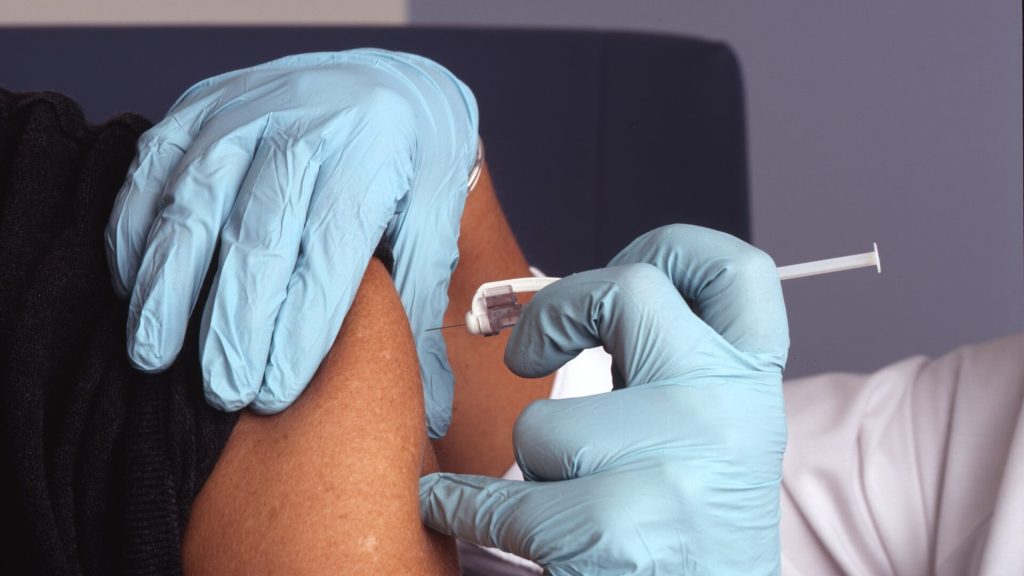
In a study of more than 30 000 health-care workers in Qatar, those who got a flu jab were 89% less likely to develop severe COVID over the next few months.
The study, which is published in Nature, was conducted in late 2020, before COVID vaccines were rolled out. Its findings align with previous work suggesting that ramping up the immune system using influenza vaccines and other jabs could help the body to fend off the coronavirus SARS-CoV-2.
In the early months of the pandemic, there was great interest as to whether existing vaccines could confer some protection against SARS-CoV-2. But collecting strong evidence for such an effect is difficult, because people who sought out vaccination for other diseases could also make lifestyle choices that reduce the odds of catching COVID.
To reduce this ‘healthy-user effect’, a team led by Laith Jamal Abu-Raddad, an infectious-disease epidemiologist at Weill Cornell Medicine–Qatar in Doha, analysed the health records of 30 774 medical workers in the country. There is probably less variation in health-related behaviour among such workers than in the general population, reducing (but not eliminating) bias, Abu-Raddad said.
The researchers tracked 518 workers who tested positive for SARS-CoV-2 and matched them to more than 2000 study participants who had tested negative for the virus. Those who had received an influenza vaccine that season were 30% less likely to test positive for SARS-CoV-2, and 89% less likely to develop severe COVID, compared with workers who had not (although the number of severe cases was small in both groups). The study was posted on the medRxiv preprint server on 10 May.
Günther Fink, an epidemiologist at the University of Basel in Switzerland, said that the Qatar analysis makes it less likely that other studies reporting the same link were a fluke. His team reported that flu vaccines were associated with lower mortality in hospitalised COVID patients in Brazil.
“This is an important piece of evidence,” says Mihai Netea, an infectious-disease specialist at Radboud University Medical Center in Nijmegen, the Netherlands. The observation that influenza vaccines are linked to a reduction in not just SARS-CoV-2 infections, but also disease severity, strongly suggests that the protection is genuine, he adds.
How long this protection lasts is unclear. Among those in the Qatar study who had the flu jab and later contracted COVID, Abu-Raddad’s team recorded SARS-CoV-2 infections occurring, on average, about six weeks after vaccination. “I don’t expect to see this effect lasting long at all,” he says. Netea guesses that the benefits last for between six months and two years.
Exactly why flu vaccines, which are inactivated viruses, would also protect against COVID is unclear. Vaccines teach the immune system about specific pathogens, but they also stimulate broad-acting antiviral defences, said Netea, who has found signs of such responses in flu-vaccine recipients.
Netea’s team is also working to better quantify the benefits of vaccines targeting influenza and other diseases against COVID. His team has launched a randomised, placebo-controlled trial in Brazil that will test whether influenza and measles–mumps–rubella vaccines can protect against COVID, fully excluding the healthy-user effect.
Knowing that vaccines for flu and other diseases can offer protection against COVID, even if only partial and for a limited period, could limit the damage caused by a future pandemic before a vaccine for that disease is developed, Netea argues. “If you have something in the beginning, you could save millions of lives.”
Source: Nature

